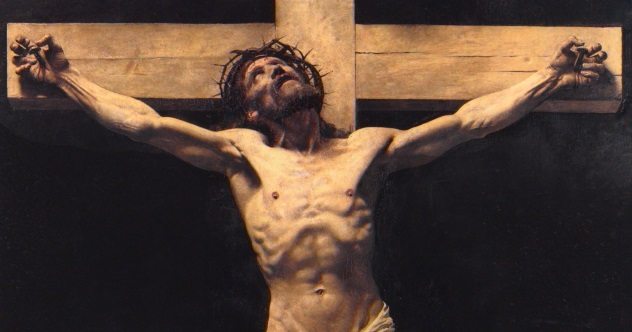Alexander Bolotnikov - Doctor of Philosophy, researcher of Christianity and Judaism. His lectures are devoted to the study of the Bible - both the Old and the New Testament. Bolotnikov preaches in the Adventist Church.
Christianity and Judaism
Bolotnikov’s sermons provide evidence of a Christian interpretation of the Old Testament prophecies, carefully relying on the texts. However, Christianity in his lectures always correlates with Judaism. It is presented both in unity with it (as the first Judeo-Christian communities), and in comparison, as in the case of comparing different views on the Messiah. For example, Alexander Bolotnikov in his sermons denies the guilt of the Jewish people in the crucifixion of Christ. Specific participants in this tragic event are the high priests, the part of the Jerusalem population present in the square, Pontius Pilate and the Roman soldiers as forced executors of the execution. However, from a deeper, theological point of view, the blame lies with each of us, because Jesus would have nothing to avoid death if he had not voluntarily come to her for our sins.

The preacher is sometimes not afraid to point out the mistakes of the church fathers and regrets that Christians began to consciously emphasize their difference from the Jews, losing many traditions. The manner of his speech is emotional, the speech is loud and peculiar, which causes a different attitude from the audience: someone cannot come off, and someone such style of speech causes irritation.
Revelation Studies
Bolotnikov’s sermons on Revelation are interesting. According to the scientist, most people mistakenly determine the time of events described by Revelation. Only part of this work of the beloved disciple of Christ relates to the distant future. He - from chapter 15 - is called eschatological, which means the latter. This word has long been assigned the meaning of something related to the end of the world. However, the chapters that go before this relate to events that "should happen soon."

Do not forget that the apostle wrote this in the 90s of the first century A.D. e. Therefore, always holding an equal sign between the word apocalypse (and this is a revelation in Greek) and the end of the world is not entirely correct, as Bolotnikov assures in the sermon. Part of Revelation before chapter 12 is called historical and is a prophecy about events that are currently in the past, for example, the fall of the Roman Empire. It is for this reason that the apostle uses numerous allegories and references to the Holy Scriptures.
Allegories as a necessity
John, who was sent to the island of Patmos, was going to send a Revelation to the churches of Asia - that was the name of the western part of Turkey. The risk that the manuscript would be intercepted by the Romans was great. If we write about future events that directly relate to the fate of the Roman Empire and its power in clear text, the pagans will not understand the deep divine meaning, but Christians will once again see the culprits of all their troubles and even dangerous terrorists.
Christians, mostly immigrants from the Jews, were very familiar with the Bible and took out from their old religion the tradition of listening to the Holy Scripture on Saturdays. Therefore, the hints of the apostle should have been understood by them, in contrast to the Gentiles, for whom the biblical prophecies and psalms were something alien and incomprehensible.
All the sermons of Alexander Bolotnikov on Revelation are distinguished by a thorough analysis of each passage of the text. For example, while in his first 30-minute sermon Bolotnikov reports on the temporal correlation of the Apocalypse and the principles of understanding the text, the second lecture is entirely devoted only to the greeting that goes at the beginning of the book. Each greeting phrase is truly saturated with deep meaning and associations and leads to Bible passages.
Temple of heaven
In the third sermon of Bolotnikov, the main leitmotifs of Revelation are highlighted - the motive of the heavenly temple, the sanctuary, and the motive of the court. The image of the heavenly temple is important because about 20 years have passed since the writing of the book since the destruction of the Jerusalem temple by the Romans. This event painfully echoed in the souls of not only Jews, but also Christians. After all, the first Christians visited the temple, and Jesus himself called it the home of his Father. In consolation to suppressed believers, the apostle writes that he saw in heaven a temple and all ritual objects: menorah, altar. Even if the place of worship of God on earth is destroyed, nothing will be done with heaven.

Christ in these passages appears in an unusual way - with white hair “like a white wave”, which refers to the prophecy of Daniel, where the future Judge also looks. The image of the old man "decrepit in days" is characteristic of God the Father, therefore, the fact that the Son of Man is the apostle in this form emphasizes their essential unity, which is not amenable to philosophical analysis.